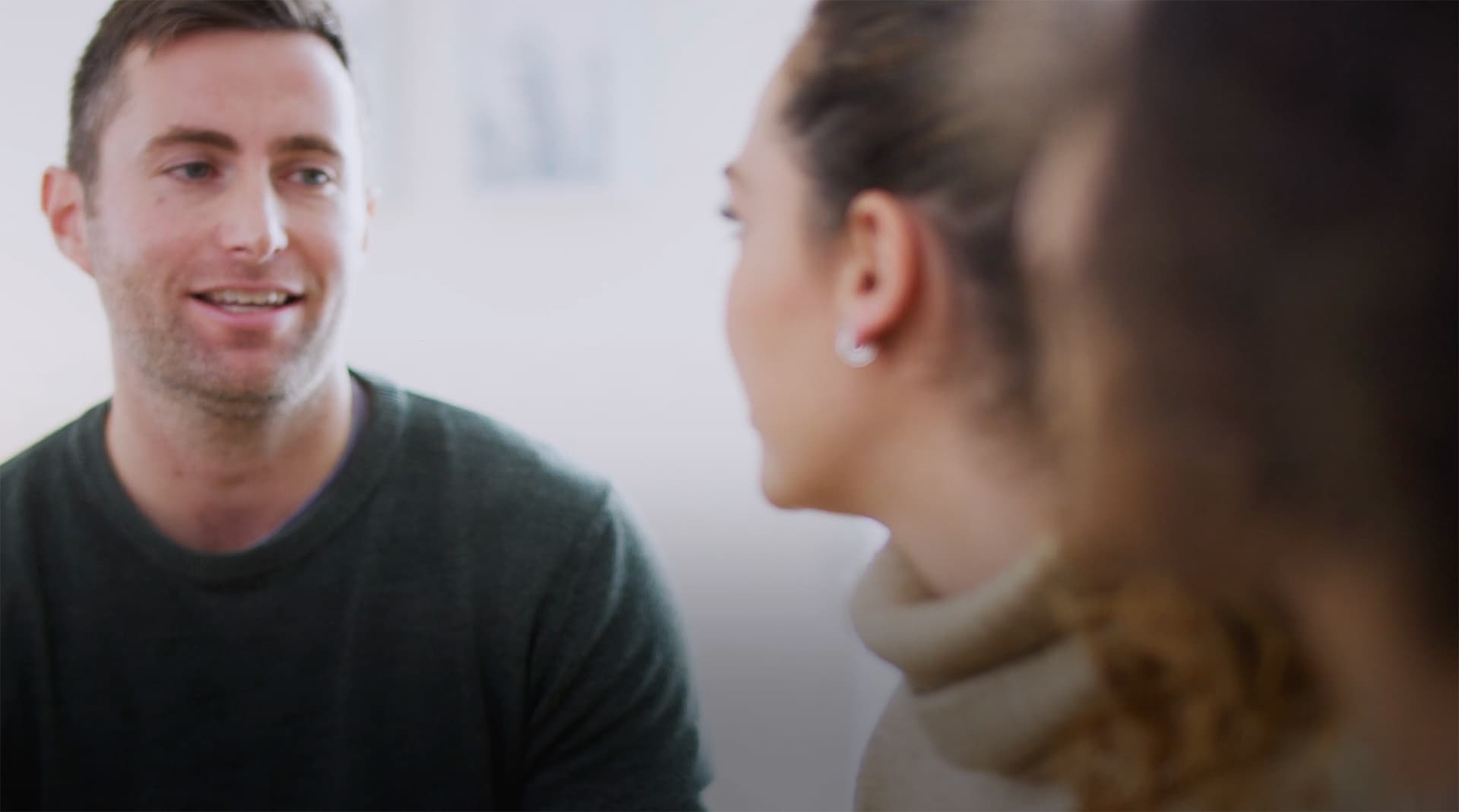10 career options with a counselling degree

Would you consider yourself as someone who’s passionate about helping others? Then counselling could be the right career for you.
The role of counsellor can be found in many workplace settings around Australia. Their skills include but are not limited to helping managers enhance wellbeing in the workplace, health professionals to practise respectful and inclusive counselling and community workers to support disadvantaged and marginalised individuals.
They could hold a job role in relationship counselling, psychotherapy or school counselling. Or they might find themselves guiding the way by applying the skills of a counsellor to a variety of career paths.
Be inspired by some of these career options in counselling.
4 types of counselling roles
If you’d like to build your career in counselling, you’ll be pleased to hear that there are plenty of rewarding careers to choose from. Here are five of the most common types of counsellor jobs.
Relationship counsellor
In popular culture, relationship counsellors often arise in rom-com movies when an already unlikely relationship has gone post-nuclear.
In reality, it can be a sudden or subtle change in life that calls on a relationship counsellor to guide the way.
Elly Taylor is a relationship counsellor and author who has supported many parents through childbirth as a perinatal relationship counsellor.
If the parents find themselves unable to manage daily challenges with a fragile, young life in their hands, some mums and dads may want to give up and run away – leading to feelings of regret and guilt.
When Taylor applies her skills in counselling, she says parents learn to understand why they feel that way and validate those feelings. In some cases, relationship counselling is beneficial to managing the stress that an additional, dependent family member can put on the couple’s relationship.
Relationship counsellors often work in private practices or with community support organisations.
According to SEEK, the number of relationship counsellor roles in Australia is expected to increase by 15 per cent over the next five years.
Financial counsellor
Financial counsellors don’t generally seek a high profile, but Scott Pape is a financial counsellor whose personal profile is eclipsed only by his skills in managing money.
Backed by his career in finance, Pape provided investing advice to thousands and wrote a best-selling book, The Barefoot Investor. Then in 2000 he earned his financial counselling qualification and became a not-for-profit financial counsellor.
Pape also shared that financial counselling was not just about solving financial problems. It was about listening to fathers with terminal cancer, mothers experiencing family violence and young people who can’t see their way out of debt.
Rehabilitation counsellor
Jo Muirhead is a rehabilitation counsellor who doesn’t mind repeatedly explaining that her job is not about working in drugs and alcohol.
Rehabilitation counsellors work with people living with disability, health conditions or social disadvantage. These counsellors support them in living independently, in finding and managing employment and in accessing a variety of services.
“We help people make sense of where they fit within the world after they have experienced an injury, illness or traumatic event,” Muirhead tells The Sydney Morning Herald.
To become a rehabilitation counsellor, you can pair the University of Canberra Master of Counselling with an accredited graduate diploma in rehabilitation studies.
Alternatively, you can complement the University of Canberra Master of Counselling with your bachelor’s degree in social work, allied health or health science.
SEEK predicts that the number of rehabilitation counsellors in Australia will increase by 15 per cent over the next five years.

School counsellor
Many of us first experienced the benefits of counselling through a school counsellor.
While the challenges of technology and society may have evolved slightly since we were at high school, the fundamental challenges of learning while managing peer and family relationships remain constant.
School counsellors are likely to work within one school and provide support to students of all ages, as well as their families. They can help students with handling peer and family relationships, overcoming learning issues and managing complex emotions. They also assist students with any social, emotional, behavioural and mental health issues that they may be experiencing.
This is a role where you can make a real impact on the safety and health of young people during their learning years.
Alternative counselling roles
Outside of being a counsellor, you can find alternative career opportunities wherever the skills, tools and strategies that you gain through the University of Canberra's online counselling courses can be used to improve the life of another.

If you’re interested in applying counselling skills in a broader role, take a look at the job opportunities below.
Youth worker
Dale Huddleston is a youth worker at the Gugan Gulwan Aboriginal Youth Corporation in Canberra. The visual artist and musician has been teaching guitar and piano to young people every Monday night for a decade.
"We've had some kids that were really, really shy and since they've been in the music program, they've started to perform, their self-confidence has grown," Huddleston tells the ABC.
One of those shy kids was Stewart Barton, whose debut single hit number two on the Australian country iTunes charts earlier this year.
"All us guys here are over the moon," says Huddleston.
The demand for youth workers in Australia is expected to rise by 15 per cent over the next five years, according to SEEK.
Family support worker
Family support workers are likely to work with organisations concerned with child protection, family health and family services. They assist children and families through practical advice and emotional support.
The number of family support worker roles in Australia is expected to jump by 15 per cent over the next five years, according to SEEK.
Private practitioner
A private practitioner can find themselves working with organisations to provide training and mental health education, or pursuing opportunities in the Employee Assistance Program (EAP) space.
The goal of an EAP counselling provider is to help company employees through personal challenges that may affect their job performance. They have the opportunity to work with a wide range of issues, from relationship and financial hardships to mental and physical health concerns.
Beyond EAP, a private practitioner can also work to support children with developmental delay and people with intellectual, physical, sensory, cognitive or psychosocial disability through the state and federal governments-funded National Disability Insurance Scheme (NDIS).
According to the Victorian Government this year, around 105,000 Victorians will get access to disability services under the scheme.

Psychotherapist
Psychotherapy is also known as psychological or talk therapies – a group of therapies that seek to understand distressing feelings, thoughts and behaviours and work towards changing them.
Dr Reenee Singh is a psychotherapist and a great example of someone whose counselling skills set her on a specialised path of working with couples from different cultural backgrounds. Singh’s work comes from the heart as her partner has a different cultural background to her own, which means they’re a household that enjoys celebrating Diwali and Christmas.
“Research has shown that when intercultural couple relationships work well, they're far more resilient, even the couples where one has had to sacrifice one's own family of origin,” Dr Singh tells the ABC.
Recognising the suitability of psychotherapy in diverse cultural contexts, the University of Canberra has designed its postgraduate counselling courses to understand the major models of psychotherapy. You will have the opportunity to evaluate these frameworks according to the social and cultural contexts at play.
Disability support worker
Disability support workers are health professionals who tend to work with individuals in their homes, hospitals or specialised healthcare settings.
Beyond providing practical assistance with daily tasks such as shopping, food preparation and personal care, disability support workers provide companionship and support to people living with disability.
Counselling can play a large role in successfully supporting clients to develop their skills, abilities and confidence.
SEEK notes that the number of disability support worker roles in Australia is expected to increase by 25 per cent over the next five years.
Therapeutic case worker
Around one in 32 children in Australia are unable to live with their families. Instead, they are living in out-of-home care which includes foster care, kinship care (foster care with their extended family) or residential care, in a home that is staffed by carers.
Residential care has been evolving over recent years to a therapeutic model that takes a child-first approach and aims to actively facilitate healing and recovery from the effects of abuse, neglect and separation from family.
Therapeutic case workers can play an important role in improving the lives of some of the most vulnerable children in our community.
This is a role that will benefit from a deep understanding of the person-centred, trauma-informed and attachment therapies, which can be provided to clients according to their needs.
Advantages and challenges of being a professional counsellor
With so many career options, you may be surprised to find that most professional counsellors experience the same challenges and advantages.
Challenges
- Working with challenging clients while maintaining boundaries and dual relationships.
- Attending to the life difficulties of others and having a reliable support system to process the emotional toll of helping others for a living.
- Keeping face-to-face or online sessions to time during a meaningful session without appearing dismissive or uncaring.
- The need to actively connect with others and gain peer support especially when working alone.
- Maintaining physical self-care and not letting it become secondary to psychological well-being.
- Balancing the urge to help families, couples and individuals who have immediate needs of support, while practising regular self-care to maintain long-term endurance.
Advantages
- Working with a wide variety of clients and client issues and engaging in deep and transformative work.
- Presented with a dynamic experience where there are continual opportunities for learning on the job.
- Being part of an employment landscape in Australia where demand for counsellors remains high.
- Having the option to work for oneself or various other types of organisations such as the school, government or local council.
- Opportunity to become a supervisor and work with other counsellors to enhance their practice and train up new counsellors.
- Being part of a professional peak body that maintains professional standards and ethics and promotes professional development (more on this below).
ACA registration is a good idea
Do counsellors need to be registered in Australia? The short answer is no, however registration with the Australian Counselling Association (ACA) is a credible way to show that you are an ethical and professional practitioner.
Firstly, the ACA provides a consistent code of ethics and practitioner standards for counsellors, which give your clients confidence when choosing your services. All members of ACA also have continual professional development requirements, which help you ensure that you maintain and develop your counselling skills throughout your career.
By paying a membership fee and proving that you have attained a degree in counselling, you can become an ACA member while also gaining access to thousands of counselling jobs that are advertised on the website.
So, where do you begin? You can start working on the entry requirements by embarking on the Master of Counselling, which has been designed to meet the ACA’s professional training standards.
Regardless of the career path you wish to embark on, learn to become a leader in your industry with the University of Canberra.



